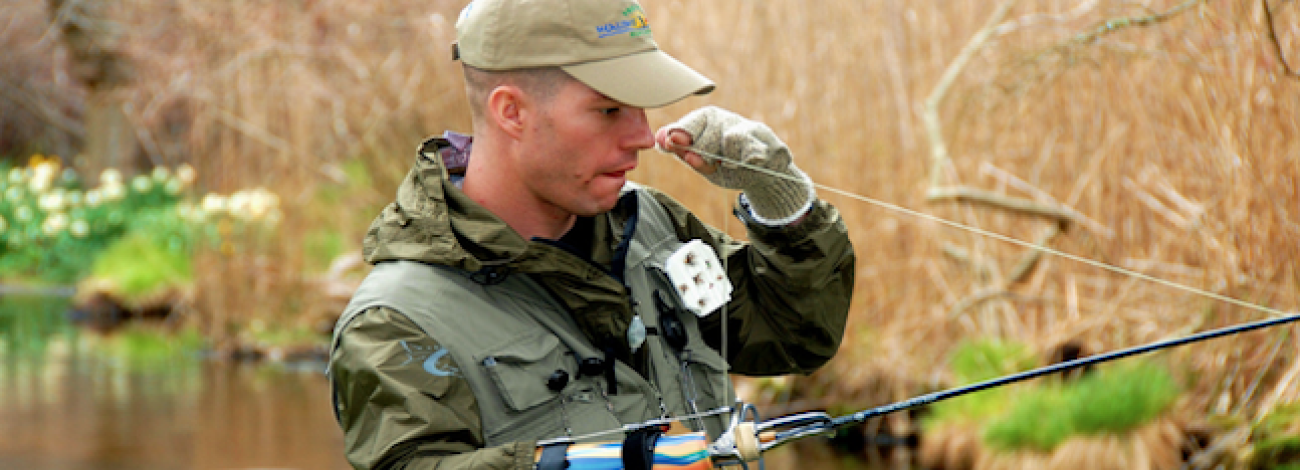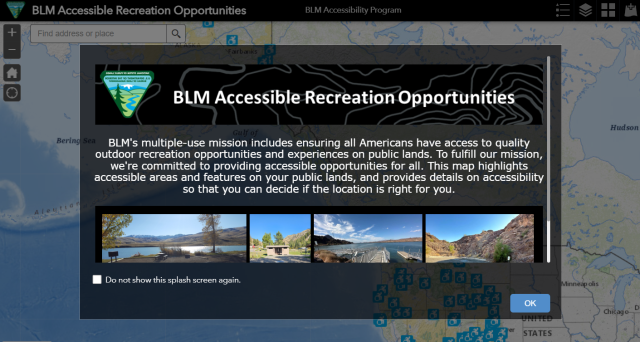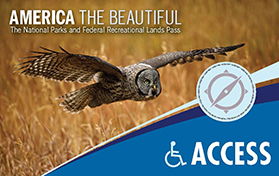 lake with arm disability during the Alaska Project healing waters event" width="1300" height="470" />
lake with arm disability during the Alaska Project healing waters event" width="1300" height="470" /> lake with arm disability during the Alaska Project healing waters event" width="1300" height="470" />
lake with arm disability during the Alaska Project healing waters event" width="1300" height="470" />
The BLM is dedicated to ensuring that everyone has an equitable opportunity to access their public lands by providing access to facilities, programs, services, and activities for people with disabilities. The information below provides details on opportunities, resources, laws, policies, and guidelines.


The America the Beautiful - Access Pass is a free, lifetime pass available to United States citizens or permanent residents that have a permanent disability and may offer free or reduced rates at fee sites on many federal lands. More information can be found in the "Access Pass" section below.
The BLM commitment to providing accessible recreational opportunities includes those injured while serving in the military.
Most of the work the BLM does with veterans groups is at the local District or Field Office level. The BLM works with non-profit groups, guided outfitters, and veterans organizations in coordinating a number of recreational opportunities and events for veterans and their families. Several events include the annual Veterans Family Fishing Classic at Jupiter Inlet Lighthouse and the Palm Beach Veterans Wheelchair Accessible Boat Fishing events in Florida and a whitewater rafting trip on the Colorado River through Westwater Canyon in eastern Utah.
The BLM works with many organizations that focus on helping disabled individuals and veterans experience the proven benefits of participating in outdoor activities. These groups include:
An America the Beautiful – Access Pass is your ticket to more than 2,000 federal recreation sites throughout the United States.
Cost: Free
Available to: U.S. citizens or permanent residents with permanent disabilities. Applicants must provide documentation of permanent disability and residency or citizenship.
How to Obtain:
Required Documentation: Applicants are required to show one of the following forms of documentation to establish proof of permanent disability:
(1) A statement signed by a licensed physician attesting that the applicant has a permanent physical, mental, or sensory impairment that substantially limits one or more major life activity and stating the nature of the impairment; or
(2) A document issued by a Federal agency, such as the Veteran’s Administration, which attests that the applicant has been medically determined to be eligible to receive Federal benefits as a result of blindness or a permanent disability. Other acceptable Federal agency documents include proof of receipt of Social Security Disability Income (SSDI) or Supplemental Security Income (SSI) due to disability; or
(3) A document issued by a State agency, such as the vocational rehabilitation agency, which attests that the applicant has been medically determined to be eligible to receive that agency’s benefits or services as a result of medically determined blindness or permanent disability. Showing a State motor vehicle department disability sticker, hangtag, or license plate is not acceptable documentation because those items do not identify the individual to whom that disability related permit is issued.
Additional information:
Several federal laws guide the BLM’s accessibility program – including the Architectural Barriers Act of 1968, the Rehabilitation Act of 1973, and the Americans with Disabilities Act of 1990.
The U.S. Access Board is a federal agency that promotes equality for people with disabilities through leadership in accessible design and the development of accessibility guidelines and standards for the built environment, transportation, communication, medical diagnostic equipment, and information technology. The Board acknowledges that achieving accessibility in outdoor environments can be difficult due to challenges and constraints posed by terrain, the degree of development, construction practices and materials, and other factors.
The Access Board has issued requirements that are part of the Architectural Barriers Act (ABA) Accessibility Standards. These Standards address newly built or altered trails, picnic and camping areas, viewing areas, beach access routes, and other components of outdoor developed areas on federal sites. The guide is available as a pdf document: Outdoor Developed Areas: A Summary of Accessibility Standards for Federal Outdoor Developed Areas (7Mb).
Accessibility Principles and Elements
The BLM manages its accessibility program from the national office, with collateral-duty accessibility coordinators in state offices. The guiding principles of the BLM’s Accessibility Program are:
Key elements of the BLM’s Accessibility Program include: